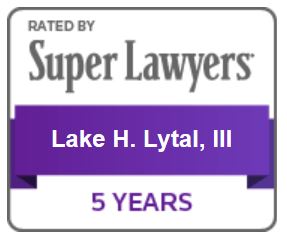Many factors can contribute to a truck accident. In fact, it can be rare to find an accident where one individual is 100% at fault and the other party is completely blameless. Comparative negligence laws in Florida can work in your favor, or against you. Contact a lawyer to learn more.
Florida law recognizes this with comparative negligence. This statute allows you to file a lawsuit for damages even if you are partially to blame for your truck accident.
Comparative negligence ensures that the other party cannot refuse to pay damages if you are partially to blame. In the past, they could have found 1% fault and used that to ensure that they wouldn’t have to pay you anything, regardless of how severe your injuries were.
Hire a truck accident lawyer to determine how much at fault you may be and collect the damages you deserve. Your attorney will prevent the defendant from increasing your fault to lower their own, thus making you responsible for more than your fair share of the damages.
Contact Lytal, Reiter, Smith, Ivey & Fronrath today. We will provide you with a free consultation to help you determine your next steps and estimate your compensation.
What if I am partially to blame for my truck accident?
Here is a simple explanation of comparative negligence and what it means for Floridians.
Comparative Negligence
Comparative negligence, also called comparative fault, is the law in many states across the country. This law evaluates the liability of each party involved in an accident and uses this determination to reflect the damages they owe.
For example, in Florida, a truck accident may be 20% your fault and 80% the truck driver’s fault. In this case, the truck driver would be liable for 80% of your damages. However, you would be responsible for the remaining 20% of your own damages since these were a result of your own negligence.
Comparative negligence laws create a fairer system where a person is responsible for paying for as much damage as they caused. It is a better system than contributory negligence, in which a victim cannot recover damages if they are found to have any fault in the accident.
This outdated practice meant that the at-fault party would shift blame or find any excuse as to how the victim was responsible to avoid paying damages. All too often, it worked, resulting in victims paying out of pocket for expenses that were not their fault.
Florida’s Comparative Negligence Laws
Florida is a pure comparative negligence state.
There are two types of comparative negligence: pure and modified. Pure comparative negligence means that a plaintiff can sue for damages regardless of how much fault they had in an accident. However, modified comparative negligence only allows the plaintiff to sue for damages if they are found to be less than 50% responsible.
Florida allows victims to sue for damages even if they are found to be more than 50% responsible for an accident. Their compensation will likely be reduced to match their fault, meaning that a $1 million damage payment would be reduced by 51% to $490,000 that they can collect.
However, it is worth noting that it is extremely difficult to collect compensation if you are found to be over 50% at fault for a truck accident, even in a comparative negligence state like Florida. This is because the larger percentage of fault you are found to have, the less the jury or judge sympathizes with you.
If your fault percentage is over 40%, it is vital that you have a truck accident lawyer to represent you. If you do not, you are extremely unlikely to collect any damages, even if they are rightly owed.
Comparative Negligence with Multiple Liable Parties
Truck accidents often involve more than two parties. This may be because the accident caused a multi-vehicle collision. Alternatively, it may be because multiple entities played a role in the collision.
For example, an exhausted truck driver may have physically caused the accident, but their exhaustion was due to negligent practices by the trucking company. Perhaps the accident wouldn’t have involved other vehicles if the poor design hadn’t made the vehicle more likely to roll over in an accident. You may have been able to avoid the accident if you weren’t texting while driving.
In this example, four parties are liable for the accident: the driver, the trucking company, the manufacturer, and you.
Determining fault in comparative negligence states when multiple vehicles are involved is one of the most challenging types of lawsuits. It requires an expert truck accident attorney who understands local laws, will do a thorough truck accident investigation and is not swayed by taking on large companies.
To protect your rights and ensure that you collect the damages you deserve, hire a truck accident attorney with experience in multi-vehicle collisions in Florida. They understand how to untangle comparative negligence and fault determination.
Filing a Claim in Florida with Comparative Negligence Laws
Comparative negligence laws in Florida recognize that you are human and protect your rights to damages in truck accident cases.
If you are partially to blame for a truck accident, hire a truck accident lawyer. They can navigate comparative fault laws with specialized skills to ensure that the defendant doesn’t manipulate the percentages or shift the blame onto you.
Our expert team at Lytal, Reiter, Smith, Ivey & Fronrath are here to assist you. Call us today for a free, no-obligation case evaluation.












